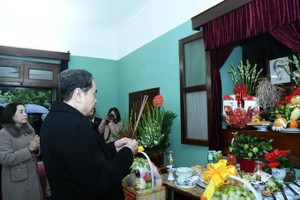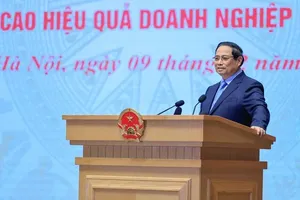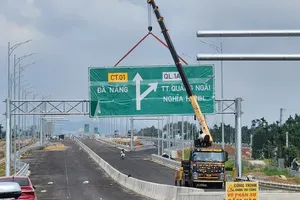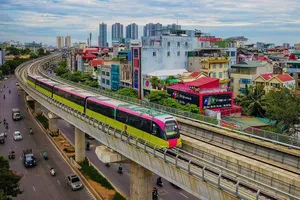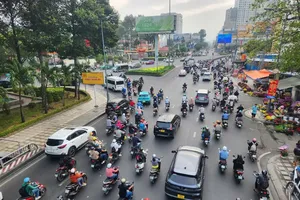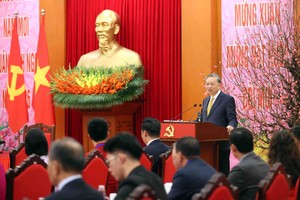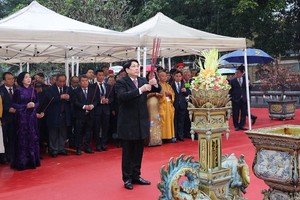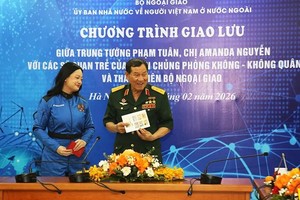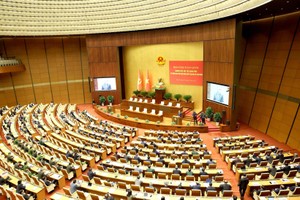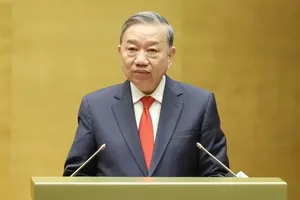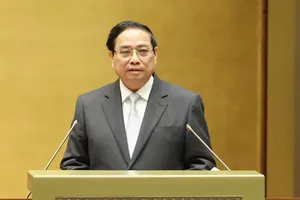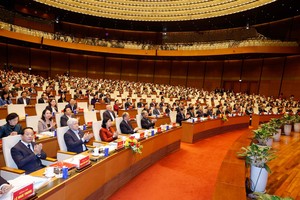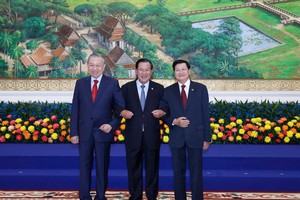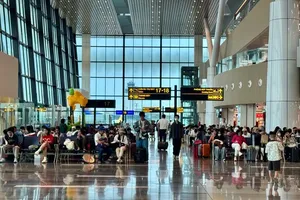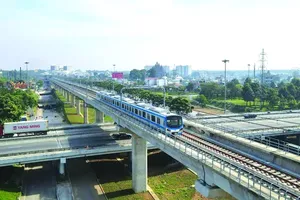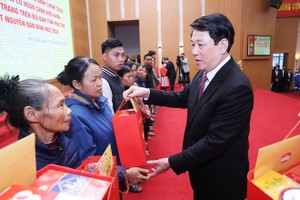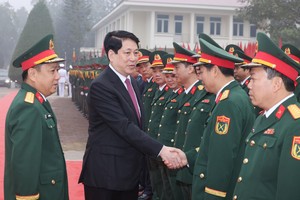Some people chose to stay after the reunification day, together with Ho Chi Minh City and the country, overcoming many hardships and achieving many miracles. Others left, but always turned their hearts back to the Fatherland, contributing their best to the motherland.
The Vietnamese intellectuals, throughout the course of history, whether they chose to remain, depart, or return, have steadfastly committed themselves to serving their homeland and its people.
My decision to stay in Vietnam is right
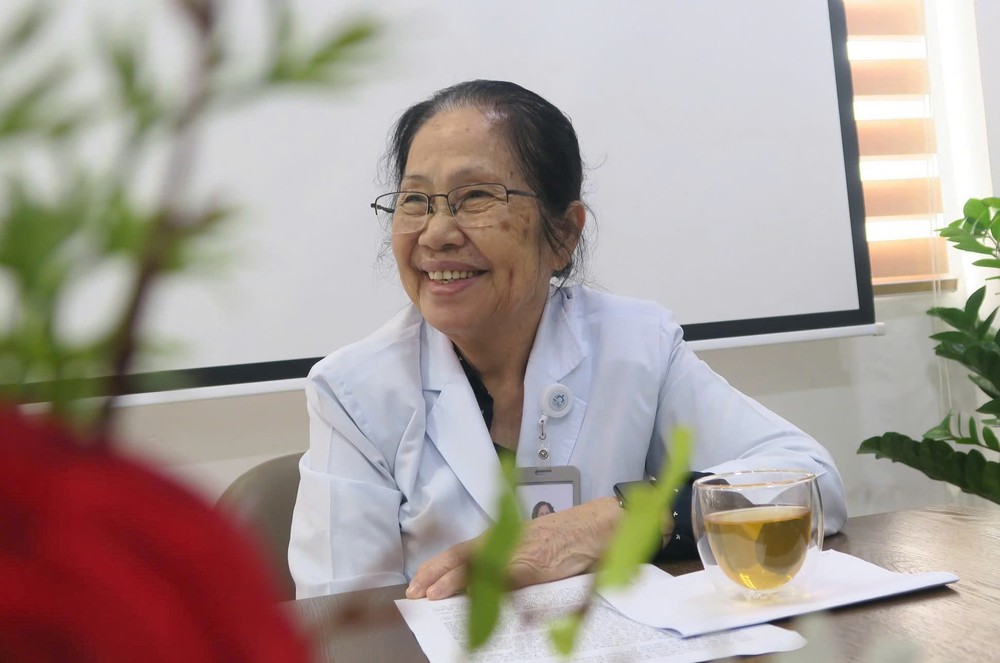
That’s what Hero of Labor, People's Physician, Professor Nguyen Thi Ngoc Phuong said when being told why she didn’t leave Vietnam for another countries.
At the age of 82, Hero of Labor, People's Physician, Professor Nguyen Thi Ngoc Phuong, former Director of Tu Du Hospital, did not choose to rest. She is still enthusiastic about research, medical examination and treatment, training the next generation and is enthusiastic about volunteer activities. With a twinkle in her eye, she quipped, "Oh, to be forty years younger! I'd be diving headfirst into all this artificial intelligence and digital transformation".
Dr. Nguyen Thi Ngoc Phuong stands as a towering figure in obstetrics and gynecology. Defying social prejudices and navigating turbulent times, she pioneered in vitro fertilization in Vietnam. Simultaneously, her unwavering dedication shone through her tireless advocacy for Vietnamese victims of Agent Orange/dioxin. It's likely these monumental achievements would not have come to fruition had she chosen to raise her children abroad after the country's reunification.
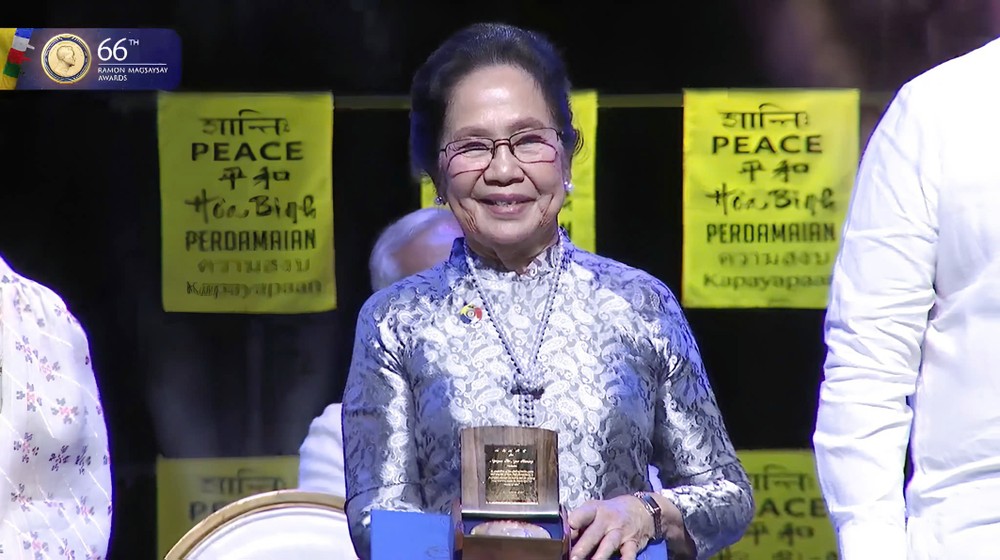
Dr. Nguyen Thi Ngoc Phuong recalled that a few weeks before April 30, 1975, many doctors and nurses in Saigon left one after another in a chaotic and panicked atmosphere. A similar situation occurred at Tu Du Hospital. Every morning, the staff was less and less, while the beds were still full of patients - most of whom were poor. At that time, she was still young, and she brought her three daughters to live in the hospital, so that it would be convenient for her to take care of the patients. At that time, the oldest daughter was only 5 years old, the youngest was still breastfeeding, and her husband was studying in France.
While the storm of war raged outside, a relentless pace consumed the medical staff within the hospital walls. In the early hours of April 30, 1975, Dr. Ngoc Phuong, having just completed surgery, was approached hesitantly by a staff member holding the flag of the National Liberation Front of South Vietnam. The staff member was wondering whether the hospital would hang this flag and she said ok. Together with her colleagues, they proudly raised the flag right there at the hospital. That very evening, the revolutionary government assumed control of Tu Du Hospital.
At a time when the country was facing instability and each family member had gone in a different direction, Dr. Ngoc Phuong's husband completed the necessary procedures to sponsor her and their four children to resettle in France. Although she had undergone health checks, received vaccinations, and held a valid passport, she made the decision to remain in Vietnam.
In 1979, her husband returned to Vietnam and once again urged her to join him in France. She gently confided to him: ‘When we were young, you and I were fortunate to receive a better education than many. Now, in these difficult times, I feel a responsibility to contribute to my homeland—so that when I die, I won’t regret having turned away or remained indifferent to my country’. That conviction became the guiding force throughout her medical career.
The reconstruction of the city after April 30, 1975 was full of challenges and hardships. This was the period when the city had to face the departure of thousands of intellectuals. In a late-night meeting, the then Secretary of the Ho Chi Minh City Party Committee, Vo Van Kiet personally visited the Department of Health to find ways to retain the city's team of doctors. The secretary worked to address the doctors' difficulties and ensure they could maintain a stable life and send their children to school.
In the following years, Dr. Phuong took on an immense workload. She served as Director of Tu Du Hospital, Director of the Heart Institute of Ho Chi Minh City, Vice Chairwoman of the Vietnam Fatherland Front Committee of Ho Chi Minh City (non-professional), National Assembly Delegate of the 7th, 8th, 9th terms. Amongst works, laying the groundwork for in vitro fertilization (IVF) in Vietnam proved an arduous endeavor. This pioneering effort led some to sarcastically dismiss Ms. Phuong as ‘not normal’.
In 1994, she was appointed Professor of Obstetrics and Gynecology at the University of Medicine of Nice Sophia Antipolis (France) and went to France to teach for 12 months. The professor used a significant portion of their salary to purchase medical equipment required for IVF procedures, which was then transferred to Tu Du Hospital.
Following this crucial step, she led a delegation from Tu Du Hospital on a trip to France to deepen their understanding and expertise. Finally, she presented the detailed IVF implementation plan to the Ho Chi Minh City Department of Health, the Ho Chi Minh City People's Committee, and the Ministry of Health. The path forward was fraught with obstacles, as many harbored fears that children conceived through IVF would not be normal, a concern amplified by the country's ongoing family planning policy. Overcoming such deeply ingrained prejudice proved to be a formidable challenge.
Along with the preparation of procedures and legalities, Tu Du Hospital sent a number of young doctors to study abroad. In 1997, Professor Ngoc Phuong invited a group of French experts to support the first IVF campaign under immense pressure. Then, by a strange coincidence, on April 30, 1998, the first three IVF babies in Vietnam were born healthy at Tu Du Hospital, marking a major turning point in Vietnamese medicine. To date, more than 150,000 children have been born from IVF, making the dream of becoming parents of infertile families across the country come true.
At present, Ho Chi Minh City is recognized globally as a leading hub for reproductive assistance and education, drawing numerous specialists from international IVF centers for research and collaboration.
Not only dedicated to her profession, Professor and Doctor Nguyen Thi Ngoc Phuong has also spent decades proving the devastation of the toxic chemical dioxin on human health. The image of the small female doctor participating in hearings before the US House of Representatives, demanding justice for Vietnamese victims of Agent Orange/dioxin is a symbol of perseverance in fighting for what is right!
In 2024, Professor Nguyen Thi Ngoc Phuong was honored by the Ramon Magsaysay Award Foundation for her tireless contributions and the search for justice for victims of Agent Orange/dioxin. During the historic days of April, witnessing the city's transformation after half a century, Professor Nguyen Thi Ngoc Phuong was moved, saying that even in her dreams, she never thought that after 50 years, the city and the country would be like today. Only individuals from her generation may fully grasp the challenges and fluctuations the country has faced, as well as appreciate the significance of today's accomplishments. She smiled adding that she was right to choose to stay in Vietnam.
"The conductor of major surgeries"
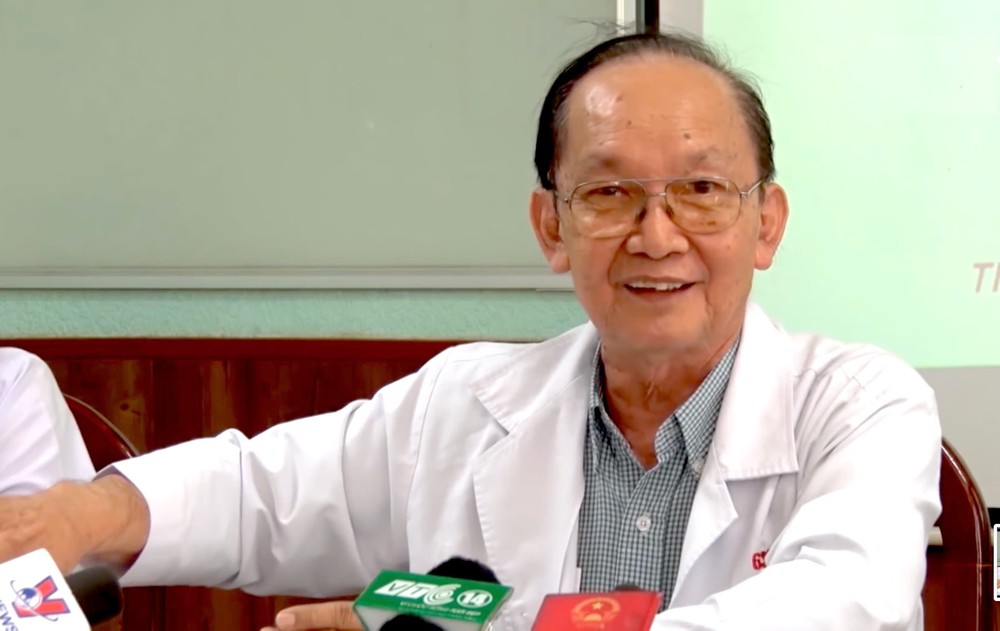
In 1988, the world was shocked when Vietnam successfully performed a major surgery to separate conjoined twins Nguyen Viet - Nguyen Duc with an extremely rare complexity. This remarkable achievement also brought international recognition to Dr. Tran Dong A, the lead surgeon.
Viet and Duc were born in 1981 in Sa Thay District of the Central Highlands Province of Kon Tum with their abdomen and pelvis joined due to the effects of Agent Orange. After 1 year of care at Viet Duc Friendship Hospital in Hanoi, the two brothers were transferred to Tu Du Hospital in Ho Chi Minh City. The stories of Viet and Duc captured significant interest from both the Japanese public and the global community. In 1987, Viet experienced acute brain syndrome, leading to a coma, and was transported to Japan for treatment, which ultimately failed. With Viet's life hanging in the balance and Duc's future also at stake, Tu Du Hospital made the decision to carry out a separation surgery, allowing both children to regain their independence.
At that time, the country was under economic embargo, lacking everything from food to medicine. To prepare for the surgery, Professor Nguyen Thi Ngoc Phuong went everywhere to find support and received help in terms of resources, equipment, and medicine from Japan. In the country, the Ho Chi Minh City Department of Health gathered leading doctors such as Van Tan, Tran Thanh Trai, Tran Dong A, Vo Van Thanh, Le Kinh, Vu Tam Tinh, Nguyen Van Hiep with countless consultations, and all scenarios were calculated.
Dr. Tran Dong A's wife at that time even sewed a doll with the shape and size of the Viet-Duc brothers so that the team could practice most accurately. Following almost a year of meticulous planning, on October 4, 1988, a 15-hour surgery was conducted, bringing together nearly 70 skilled physicians from across the nation, all under the expert leadership of Professor Duong Quang Trung, who was the Director of the Ho Chi Minh City Department of Health at that time. This operation represented a remarkable collaboration of intellect, resilience, and resolve, signifying a pivotal moment in the advancement of Vietnam's healthcare sector.
The unprecedented major surgery established the talent of the main surgeon - Dr. Tran Dong A. Being a military doctor in the old government - before 1975, he was famous for his surgeries on the battlefield. After the liberation of the South, he spent two years in re-education camps. With the encouragement of Secretary of the Ho Chi Minh City Party Committee Vo Van Kiet at that time, Dr. Tran Dong A returned to the medical profession, dedicating himself to the cause of saving people at Children's Hospital 2, Ho Chi Minh City.
During the years 1981-1982, his family was among 30 cases approved for permanent residency sponsorship by the US Government; however, he declined this offer in writing.
Remaining in the country was a pivotal decision in Dr. Tran Dong A's life, significantly influencing the medical sector in the city. Although he had numerous chances to relocate overseas, he ultimately made a singular choice.
In response to inquiries from the international media regarding his decision to remain in Vietnam, Dr. Tran Dong A said that he decided to stay because Vietnamese children require his assistance. As a physician, he take a responsibility to care for patients. He believed it was the correct choice.
The surgeon's commitment to his work has remained unwavering throughout his career. Even at the height of his professional journey, he felt a sense of dissatisfaction with his achievements. In 1989, during an international conference, he had the privilege of meeting Professor Bernard Otte, a prominent authority on pediatric liver transplantation in Europe, which introduced him to advanced techniques in pediatric organ transplantation.
In 1995, Dr. Tran Dong A was approached by Professor Raymond Reding, a Belgian expert in liver transplants, to discuss potential collaboration. This led to the establishment of a training and support program for doctors at Children’s Hospital 2, aimed at enhancing their skills in liver transplantation in Belgium. After years of preparation, in 2005, with the support of modern equipment provided by the People's Committee of Ho Chi Minh City, Children's Hospital 2 successfully conducted a liver transplant on a child under the age of 2. Having laid the groundwork for pediatric organ transplants, Professor Tran Dong A has consistently served as an advisor to Children's Hospital 2, transforming it into a specialized center for pediatric organ transplants and offering hope to children in need.
Medicine is inheritance and continuity. In 2020, the surgery to separate the conjoined twins Truc Nhi and Dieu Nhi performed at the City Children's Hospital continued the medical achievements of more than 30 years ago. This time, the two conjoined twin girls were conjoined in the pelvic area with a rare rate of 6 percent.
Professor Tran Dong A once again took on the role of an advisor to a surgical team comprising approximately 100 members, including outstanding students whom he has diligently mentored and developed. Witnessing the success of the next generation, the professor smiled with satisfaction saying that if the Viet - Duc surgery in the past created a momentum for the development of pediatric surgery, the surgery to separate Truc Nhi and Dieu Nhi will be a milestone for the progress of the Vietnamese medical sector.
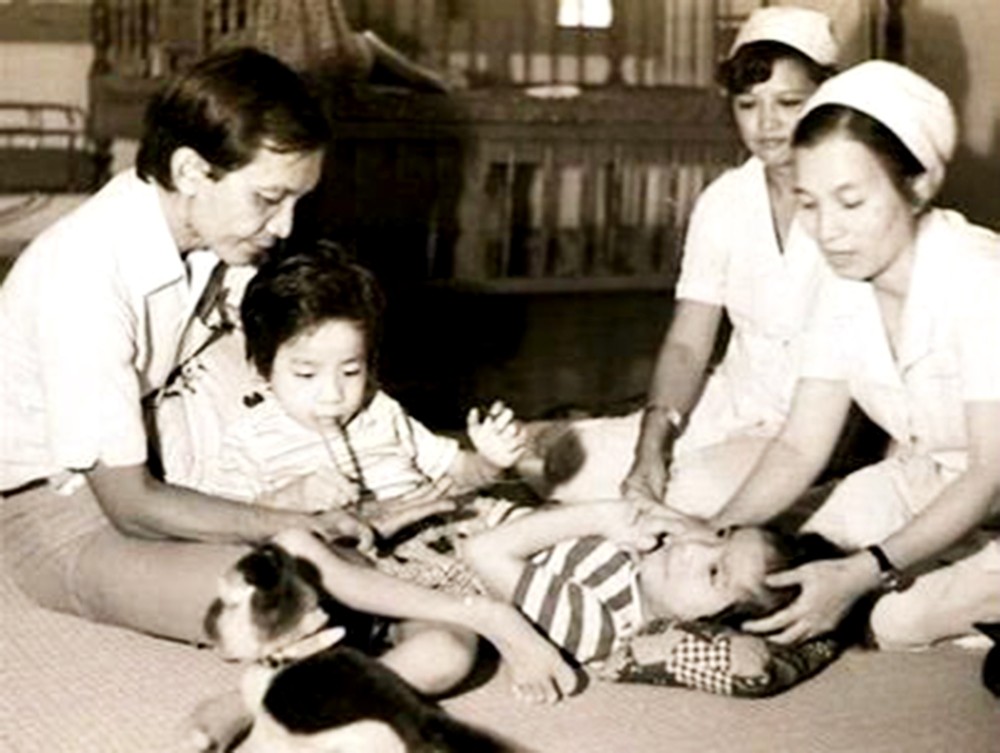
Because he worked in two different political regimes, Professor Tran Dong A received the attention of Vietnamese intellectuals abroad. Many people also called him a 'peace messenger' because of his contributions to the process of national reconciliation. When Vietnam had not yet lifted the embargo, Professor Tran Dong A was often invited to attend major conferences in the US and meet with the world's leading experts.
The presence of a former soldier from the old political regime in Southern Vietnam serving as a professor, doctor, and representative of the Socialist Republic of Vietnam at an international conference notably influenced public perceptions of intellectuals. Being a member of the Ho Chi Minh City National Assembly Delegation during the 11th and 12th terms, he made significant contributions to the advancement of the Law on Infection Prevention, the Law on Organ Transplantation, the Law on Health Insurance, and the enhancement of compassionate policies for citizens and patients.
Through the fierce and difficult periods of the country, Labor Hero - People's Physician - Professor Tran Dong A said that living and working have many purposes, for family, relatives, society, country, even contributing to the world. He thought that he has successfully accomplished nearly all of his goals so he has contributed significantly to the well-being of Vietnamese children specifically, and to the nation as a whole. This brings him a sense of fulfillment.
"My deep gratitude to the country"
One afternoon in early 2025, Mr. Bui Kien Thanh appeared at a meeting with nearly 70 young people studying business. The old financial expert, who had turned 94, smiled politely as the applause died down and slowly summarized his life journey - a life intertwined with historical milestones and the transformation of the country.
Born in 1931 into a prominent bourgeois family, Mr. Thanh was the son of Dr. Bui Kien Tin, founder of the renowned Doctor Tin Eucalyptus oil brand, a household name across generations. His family sent him to France for his secondary education, and later to the United States to pursue studies at Columbia University.
While in the U.S., fate brought Mr. Thanh into contact with Mr. Ngo Dinh Diem, who at the time was a patriot living in exile. History soon shifted course: in 1954, Mr. Diem was appointed Prime Minister by the then Head of State, Bao Dai. A few months into his new role, Mr. Diem sent a telegram to the U.S. with a simple but urgent message: ‘Mr. Thanh, come back and help me’.
At that time, the 23-year-old young man was planning to continue his graduate studies. Hearing that, he immediately put his pen aside and, along with a group of other friends, set out to return to Vietnam. Young and enthusiastic, Bui Kien Thanh gradually became a special assistant to the Prime Minister, later President Ngo Dinh Diem, of the old government.
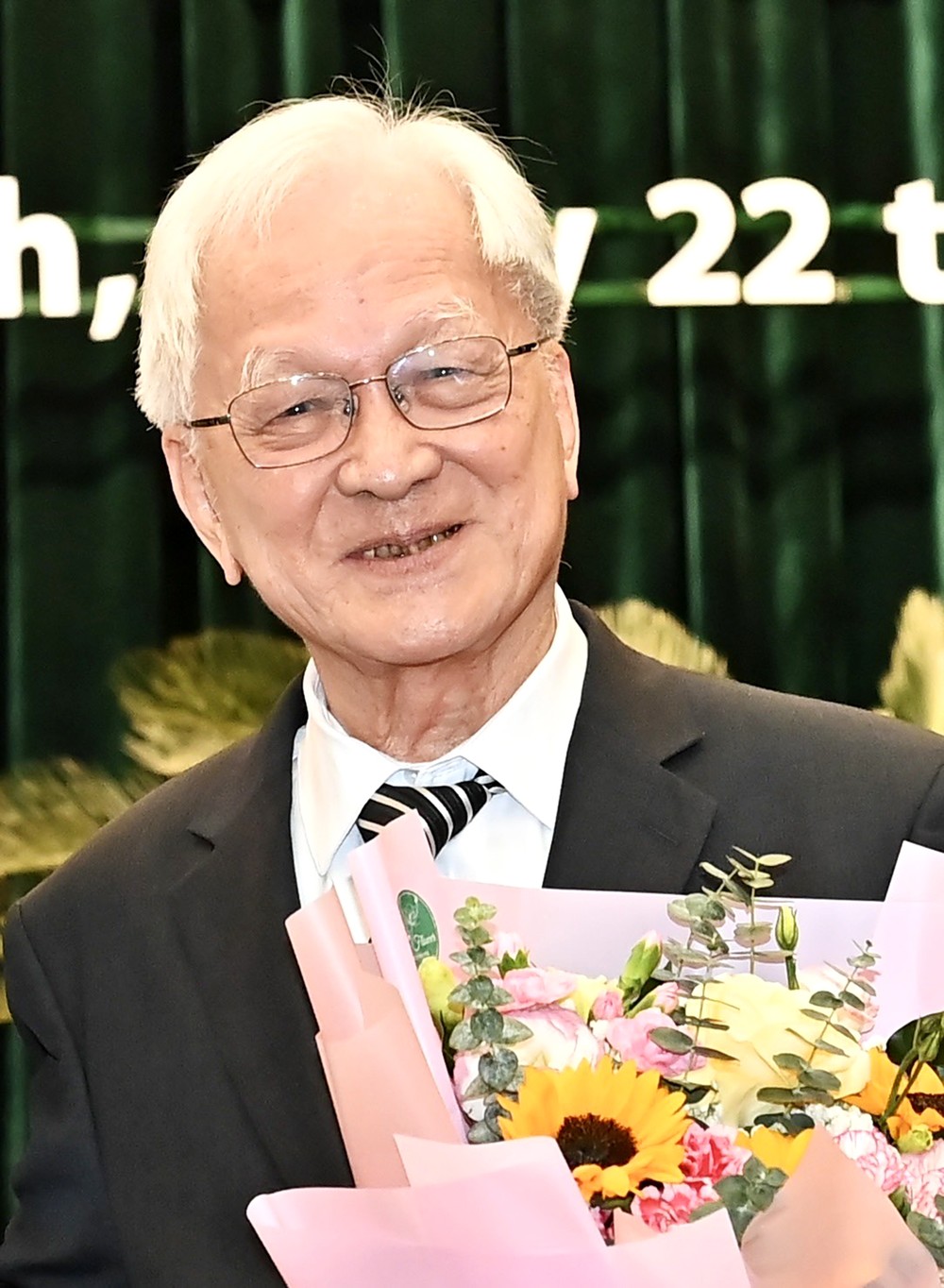
But the biggest turning point was that he was sent to the US to study banking. During those days, a young man like him approached the American elite - from senators, billionaires to policy makers. Those relationships later became valuable assets that helped him, in another role, support the Socialist Republic of Vietnam in the process of normalizing relations with the United States.
After the 1963 incident, President Ngo Dinh Diem and his brother were assassinated. Mr. Thanh was unable to escape arrest, retaliation, and a period of imprisonment. Following his release, he emigrated from Vietnam to France to establish a business. However, destiny led him back to Vietnam in the 1980s during a severe economic crisis. At that time, Vietnamese leaders actively sought his counsel in Paris as they looked for solutions to revive the economy.
At the meeting with Vietnamese leaders, Mr. Thanh said frankly that no residents could be rich if the Government banned them from selling goods.
Mr. Thanh played a pivotal role in fostering the "rich people, strong country" mindset, a spirit that paved the way for the groundbreaking 1986 Renovation policy. He emphasized that the introduction of the 'multi-sector economy' in the Resolution of the 6th Party Congress in 1986 was truly revolutionary. It restored the people's right to conduct business after years of limitations.
Moreover, throughout the 1990s, Mr. Thanh continued to play a silent role in international advocacy efforts, lifting the embargo, as well as promoting important negotiations between Vietnam and the United States, contributing to bringing hundreds of thousands of Vietnamese citizens to settle in the US through the Humanitarian Operation program.
Bui Kien Thanh, a self-proclaimed son of a capitalist with vastly different ideological views from Vietnamese leaders, ultimately found common ground in their shared love for the country. He said that he does it out of deep gratitude to the country. In his role as an advisor, Mr. Thanh supported major initiatives, such as mobilizing AIG Group to invest in Dinh Vu Port, consulting on the development of Van Phong Bay into an international transit hub, and advising on the project to build a long-cherished International Financial Center in Ho Chi Minh City.
Love for Vietnam never changes
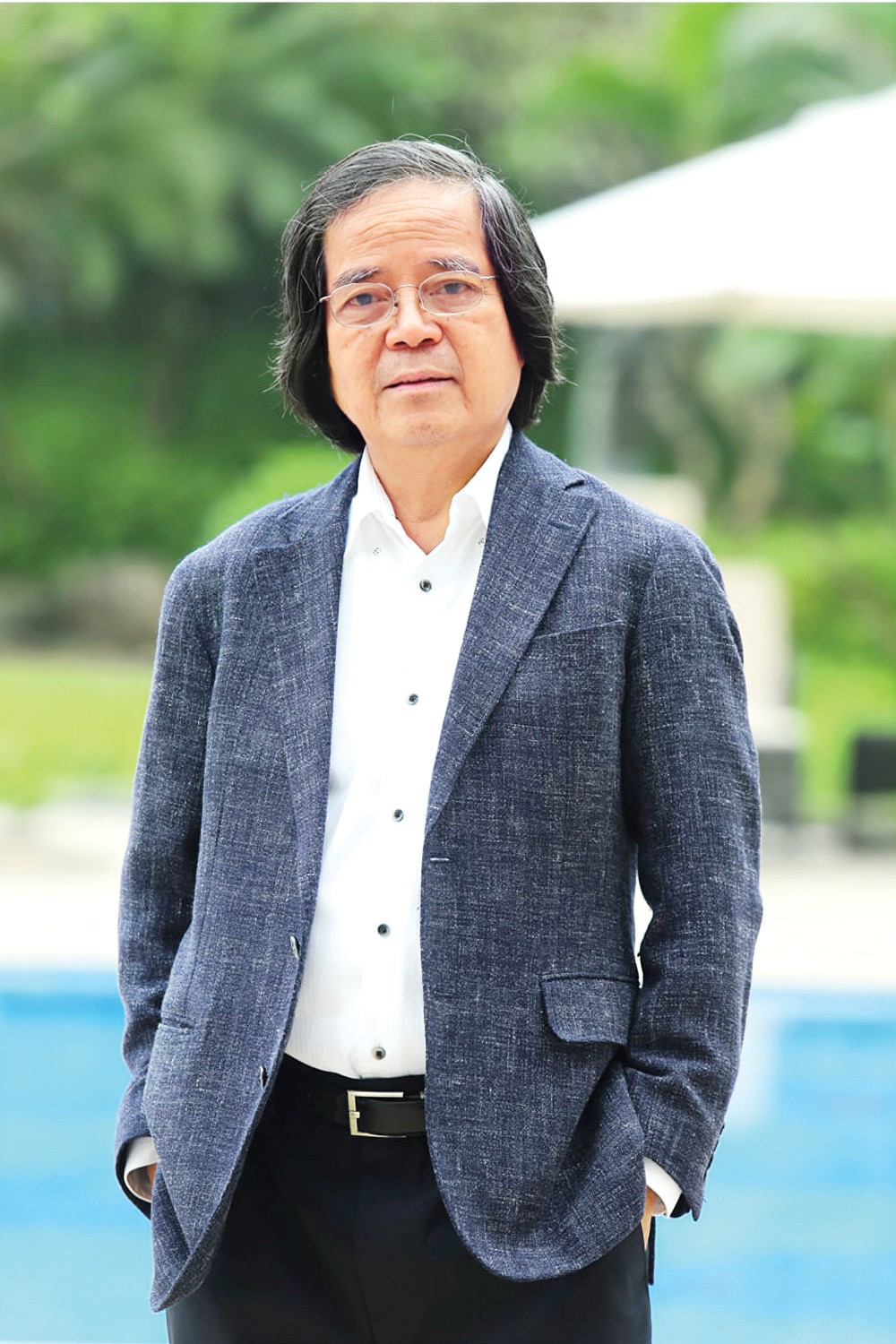
In early February, at a meeting of experts advising Ho Chi Minh City on implementing Resolution 98 on piloting a number of specific mechanisms and policies for the development of Ho Chi Minh City, Professor Tran Van Tho impressed participants by bringing Japanese experience as a lesson for city leaders to learn as they strive to achieve the double-digit growth target.
Drawing on his expertise as the author of a book detailing Japan's remarkable economic ascent, he emphasized that the crucial element wasn't merely stated goals, but rather the cultivation of an environment and system that ignited a powerful drive for growth among businesses and individuals. He illustrated this by noting that Japan, with a modest target of 7 percent, consistently achieved an impressive 10 percent growth rate for two decades, fundamentally shaping the nation we see today.
He then passionately urged Ho Chi Minh City to dismantle obstacles hindering businesses, particularly concerning capital and land access, warning that a failure to do so would lead to an exodus of enterprises. He advocated for strategic and focused public investment directly benefiting businesses, such as developing industrial parks to foster their expansion. Furthermore, he asserted that 2025 presents a critical juncture for Ho Chi Minh City to implement decisive measures if it aspires to achieve a breakthrough and realize its double-digit growth ambition.
‘With Vietnam setting its sights on becoming a high-income developed nation by 2045, the clock is ticking’, Professor Tran Van Tho said.
He also shared his motivation for collaborating with other experts on a book addressing Vietnam's development challenges. Envisioned as a significant resource, the book tackles complex economic issues in an accessible manner, aiming not only to inform experts and leaders but also to engage young readers – the very individuals who will inherit Vietnam in 2045.
